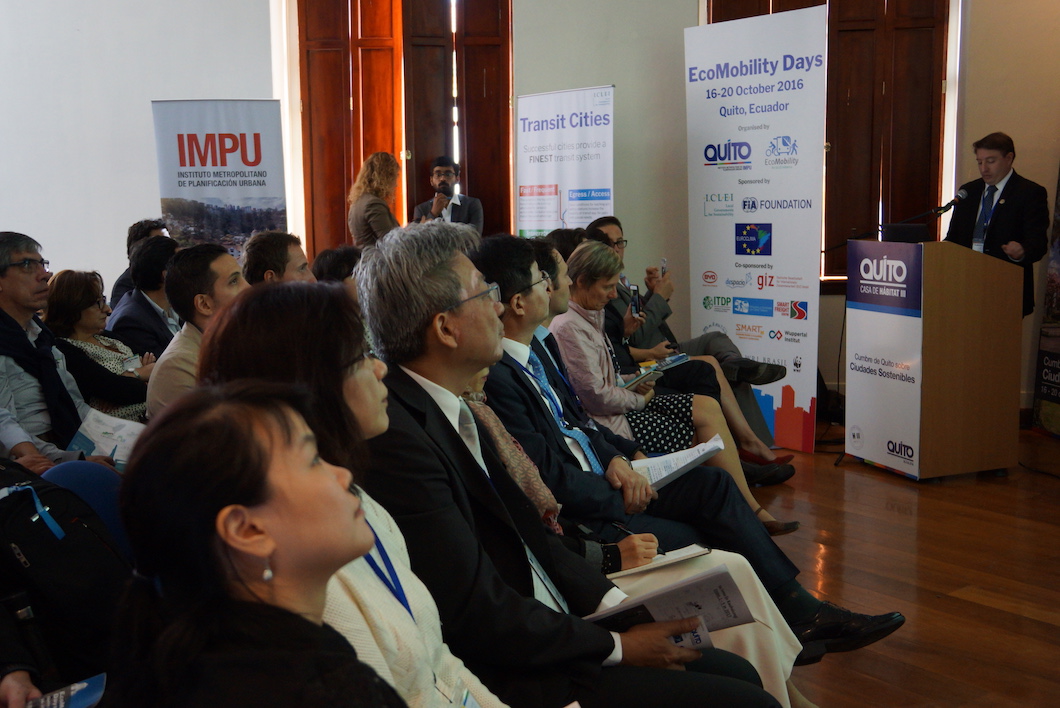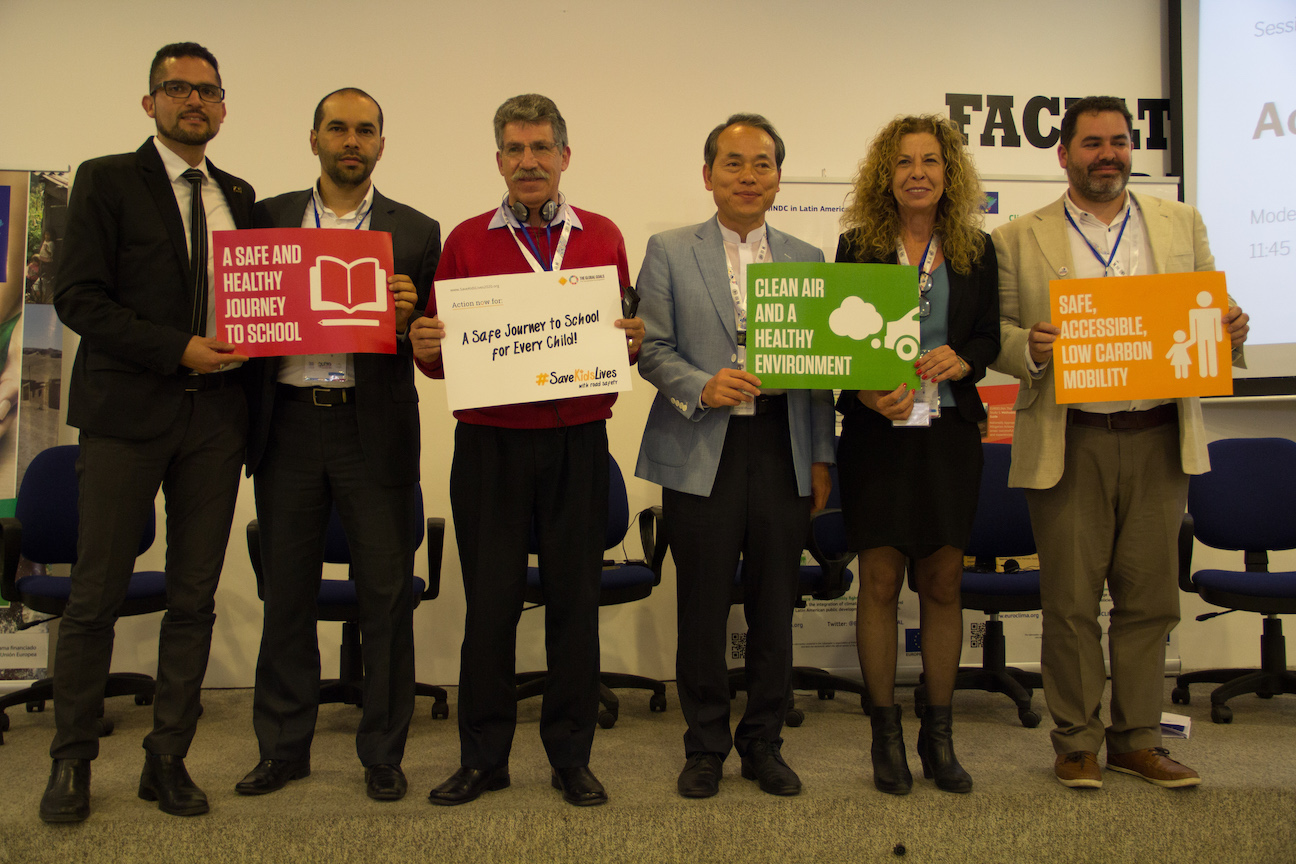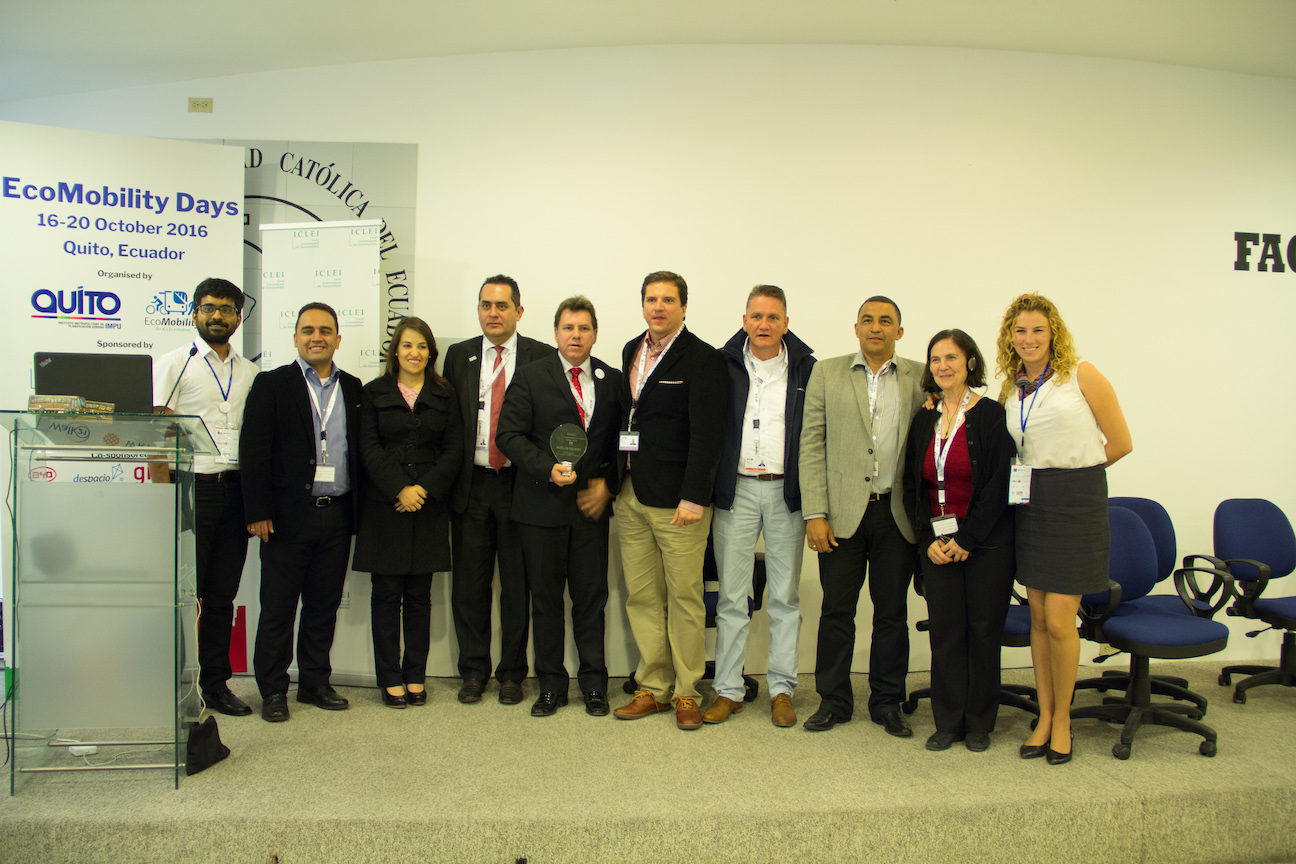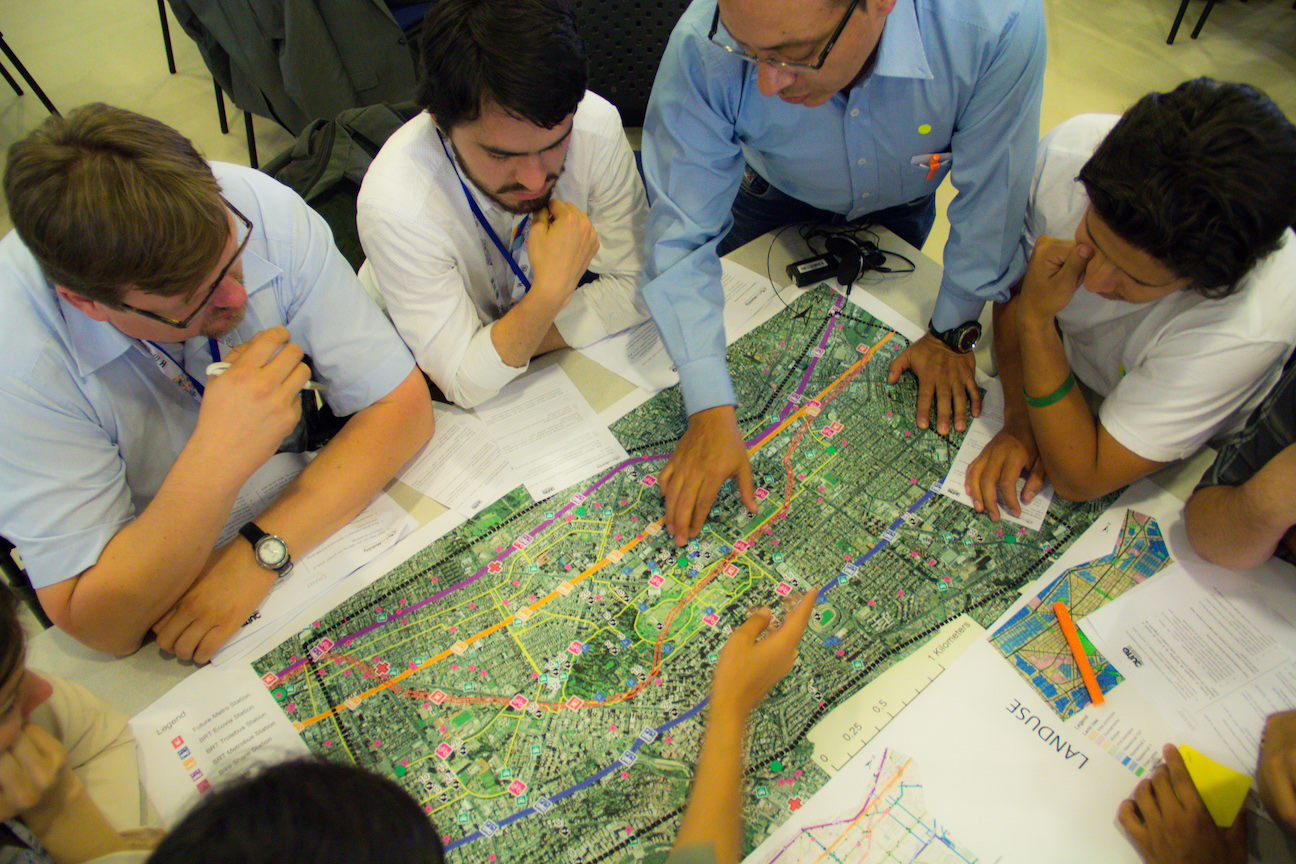From 16 to 20 October in Quito, Ecuador, the EcoMobility Days gathered local representatives, change-makers from the public and the private sectors, and urban mobility enthusiasts. In total, over 50 speakers from more than 25 countries exchanged practices, visions of the future of urban mobility and concrete tools and methodology during an intense 5-day program attended by over 200 participants.
The EcoMobility days were organized by the ICLEI EcoMobility Alliance, with support from partners such as FIA Foundation, EUROCLIMA and various other organizations working in the area of urban mobility. EcoMobility Days is a part of the technical workshop series of the EcoMobility Alliance and an effort to equip local governments to implement the New Urban Agenda, which was also being discussed at the UN’s Habitat III conference held during the same time in Quito, Ecuador.
The EcoMobility Days combined the main elements that the Alliance offers its members, to support them in enhancing sustainable mobility: good practice exchanges, tools and methodology trainings and offering a space for high-level discussions on the future of urban mobility.
All throughout the five days, more than 15 cities across the world presented their efforts in terms of sustainable urban mobility. The great number of presentation represented the diversity of challenges as well as the richness of solutions local governments are inventing to overcome these challenges. From La Paz, Bolivia, which had buses specially designed to be able to reach its populations living at a higher ground, to the city of Boulder, USA, which created bike lanes that can serve as flood control, or the city-state of Singapore which established pedestrian nights and pedestrian weekends on major roads to demonstrate the more important use of public space by giving it back to people.
Many participants and speakers testified the importance of EcoMobility and underlined that the exchanges help them find solutions applicable to their local context as well as ideas for raising funding. A great number of city representatives had the opportunity to establish direct contact with other cities facing similar challenges and learn from one another.
To equip cities with concrete implementation tools and build capacity, two out of the five days were dedicated to methodology and training. On 17 October, the Alliance, in partnership with the SMART Institute at the University of Michigan and the Institute of Urban Planning of Quito Metropolitan Area, organized a workshop on discovering, designing and implementing a multi-modal transportation system for the city of Quito. Participants were invited to work in small multi-disciplinary groups on real maps of Quito current transportation system and find ways to improve it and discover the potential for using existing networks. The workshop was held following the methodology developed by the SMART Center at the University of Michigan.
On 20 October, the Alliance offered, in partnership with GIZ and the Ministry of Urban Development and support from Dario Hidalgo (WRI Cities) and Carlosfelipe Pardo (despacio), a full training to explore the role of urban mobility in creating liveable cities. Over 30 city officials and urban planners with direct implementation capacity in developing cities participated in this training course.
Finally, throughout the five days, many sessions focused on key challenges cities are facing such as the issue of clean vehicles, air quality, road safety with women and children as the focus and the future of urban mobility in general. Experts from the mobility sector from institutions such as FIA Foundation, EUROCLIMA, ITDP, WRI Cities, Walk21 and WWF shared their visions based on their global perspective, confronting it to the local perspective of representatives from cities working on the ground. These sessions showcased the great amount of solutions that already exist and the need for political courage to implement them. As the Urban Renovation Director from the city of Cali reminded: “[when it comes to urban mobility], it is a decision, to build the city for the majority”.
Exchanges throughout the five days were very rich and demonstrated once more the centrality of the topic in cities, whether in economic, environmental or social terms. With the adoption of the New Urban Agenda, cities are encouraged to pursue their efforts and such spaces for exchanges will be all the more needed to accelerate action.
A detailed report on the EcoMobility Days and presentations are available now.






